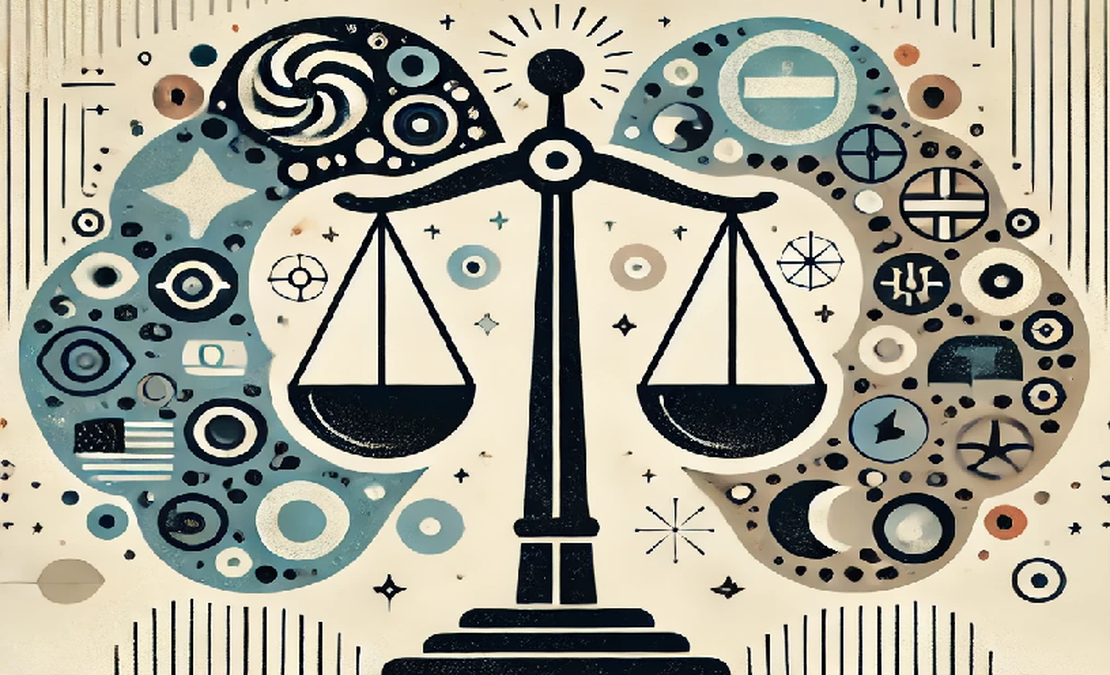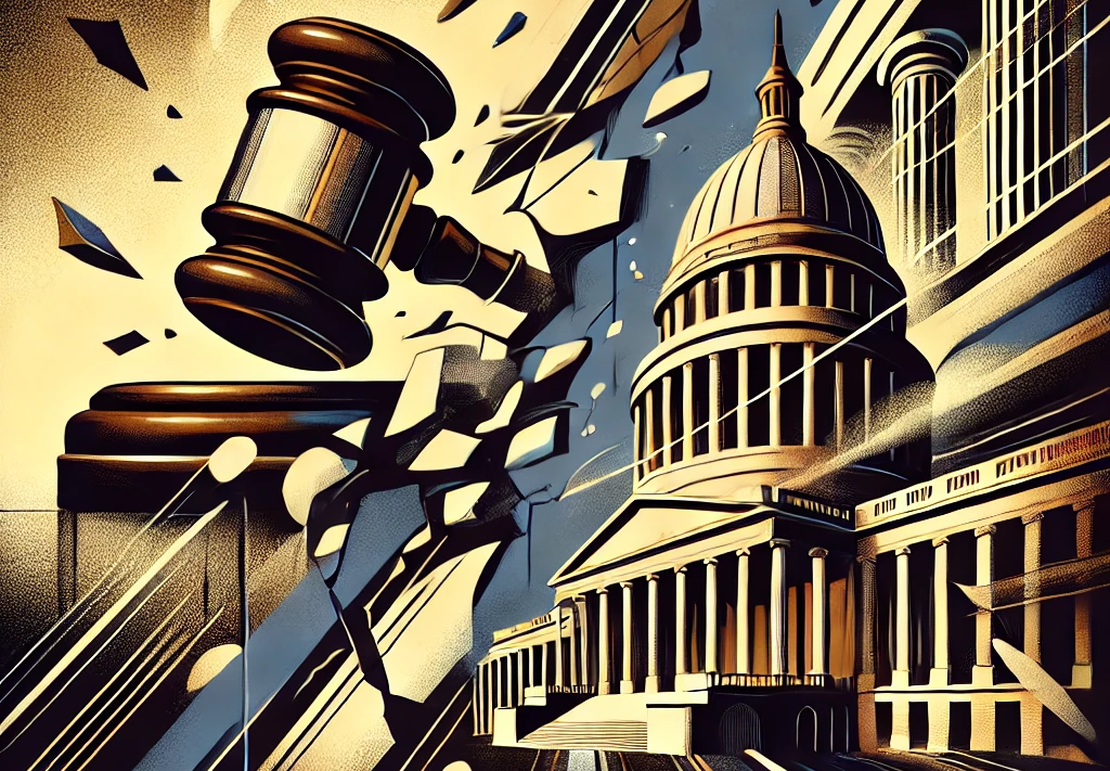
Why I'm a Centrist (And Why It Matters)
- Millennial Centrist
- About me
- August 24, 2024
Table of Contents
In a political landscape dominated by extremes, identifying as a centrist can feel like swimming against the current. For me, being a centrist is about finding pragmatic solutions that balance both sides of an issue. I believe that real progress comes from thoughtful compromise, not rigid ideology. In this introductory blog post, I’ll share my definition of a centrist and explain why I align with that label, offering my views on key political issues.
What is a centrist anyway?
First, so we’re operating with the same definition, let’s define what a centrist is. Oxford Dictionary defines centrist as “having moderate political views or policies”. Excellent, simple definitions are nice. However, it leads us to the next question… What are moderate political views?
Generally, “moderate” political views are defined as beliefs that fall in the middle of the political spectrum, avoiding extreme positions on either the right or the left. These views are typically balanced and pragmatic, usually supporting compromise and incremental change rather than radical shifts in policy.
“Moderate” political views are defined by the era so a centrist from 50 years ago (or even 10 given the current rate of change for the two major US parties) would not necessarily hold the same views as a moderate today. Centrists aren’t bound by a rigid party platform, which means moderate views can vary more widely over time and across individuals.
What makes me a centrist?
Clearly I consider myself a centrist and moderate, but with such a broad definition you’ll have to make that determination for yourself. In the following sections I’ll give you some insights into my views but will purposefully save the details for future blog posts to keep this one from becoming too large.
Economic & Fiscal Policy
I support a mixed economic model combining free market capitalism with some light government regulation in areas where the free market isn’t inherently incentivized by customers, shareholders or competitors (e.g. basic environmental regulations). I’m for reasonable taxation but believe, for the most part, the government is bad at picking winners and losers and should keep taxes low when possible to allow businesses to reinvest in the economy and let the market weed out the good from the bad.
Entitlements & Welfare Programs
I believe we need some base level of welfare programs, especially for those that are down on their luck or were dealt a bad hand. However, I think the goal of the programs should be to move people out by incentivizing work, personal development, or mental and physical health improvements. I recognize, from personal experience, that there are many nuances but feel that there are reasonable compromises that can be made to make programs helpful but with the goal of being temporary.
I think Social Security is a critical safety net for our retired and/or disabled population. However, changes must be made, and soon, to ensure that it can be reliably counted on to provide such a safety net for my generation and beyond. The fact that neither party wants to constructively discuss a compromise around gradually raising the retirement age (yes, I expect this will affect me), potential partial privatization, benefit adjustments for the wealthy, and adjustments to the payroll tax cap is a travesty.
Healthcare
I do not believe in a medicare for all approach (at all) but am generally in favor of some of the protections enacted by the Affordable Care Act like those for pre-existing conditions.
I think the US Healthcare system is misunderstood by the general population. I do think the per-capita price is too high but also realize that we have much higher system capacity than most other nations in part because of the high price (as was evident during the COVID pandemic). Similarly, we have high prescription drug prices but are the main center of innovation for medical research in the world.
I think regulations forcing greater price transparency for insurers, healthcare providers, and middlemen would go a long way to improving the efficiency of the system. I could, and will, write an entire blog post on this topic but I’ll keep it short for now.
Education
I believe our education system is the bedrock of our society and is the most potent weapon in the fight against poverty. We need some fundamental funding reform, possibly from the federal government, when it comes to lower income communities.
As with other things, I think competition is good. Allowing parents the choice of where their money is spent via school choice is a good option that will hopefully force a failing US Education system to begin elevating public schools.
COVID has shown us the power of teacher’s unions to the detriment of the education of our children. I’m not against teacher’s unions but believe some modest reforms are needed to ensure teacher accountability for failing or falling standards.
I’m for more curriculum flexibility that balances both academic skills with life skills. For example, classes that teach about financial literacy early and often in high school would go far in helping to prepare students for the real world.
Immigration
I support policies that promote legal immigration and offer paths to citizenship for undocumented immigrants, especially children. However, I am also for stronger border security and the enforcement of existing immigration laws.
Defense and Foreign Policy
I favor a balanced foreign policy approach that mixes diplomacy with military strength. Maintaining a strong military allows us to engage in multilateral diplomacy from a position of strength. We should be cautious about new military interventions but need to maintain strong support for our allies across the world in order to keep combative adversaries like China, Russia, and Iran in check.
Environmental Policy
We need to address climate change, but it should be done through moderate solutions like incentivizing green technologies through market-based mechanisms rather than heavy-handed government regulations and subsidies.
Gun Control
I’m all for responsible citizens owning firearms but the continued rise in gun violence necessitates thoughtful policy changes. Universal background checks and waiting periods seem like excellent places to start. Additionally, periodic mandatory gun safety courses would be an excellent way to ensure owners remain responsible.
Social Issues
On social issues, I’m generally for allowing people to be who they want to be so long as they aren’t hurting anyone else. I’m a Christian but believe everyone should have the ability to choose their own path.
Final Thoughts
In today’s political climate, it’s easy to get lost in the avalanche of extreme views that dominate the headlines. Both sides are often so focused on galvanizing (or enraging) their base that they forego compromise altogether leaving us nowhere.
As a centrist I believe in balance, pragmatism, compromise, and incremental change. By pulling from both sides and compromising we can create stronger and longer lasting solutions. Hopefully this comes across in the brief details I’ve shared about my views.
This blog is a place where I hope to explore my views in more detail and discuss current events in order to lend a centrist viewpoint to a space crowded with extremes.
